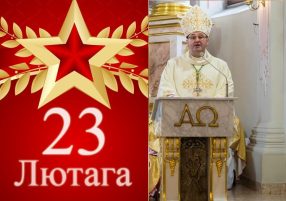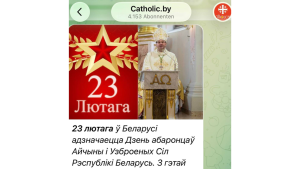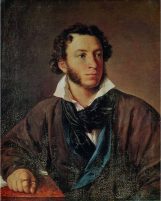Ales Bialiatski, a Nobel Peace Prize Laureate: His Catholic Activism in the 1990s
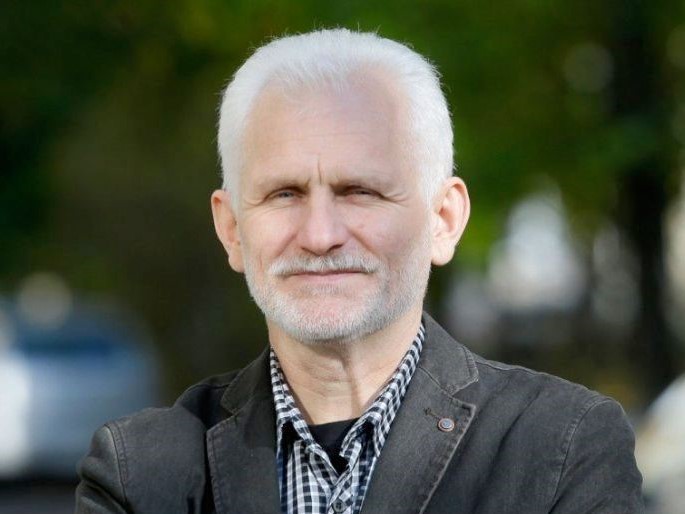
The Belarusian Nobel Peace Prize laureate is known primarily for his human rights work. Ales Bialiatski has been fighting for human rights for 26 years. It is little known, however, that in the 1990s he was well known for his work in reviving the life of the Catholic Church in Belarus after the decades of Soviet suppression. Bialiatski and his associates published the first Catholic magazine, Chryścianskaja Dumka (Christian Thought), and books, and members of the Belarusian Catholic Assembly, a non-governmental organisation he co-founded, work for the Church to this day.
“In the early 1980s, when religious life in the USSR was suppressed, these topics were discussed – from the standpoint of people’s right to freedom of conscience and the right of Belarusians to their own language in various denominations – in our circle of those who worked for independence. Naturally, we were interested in the situation of the Roman Catholic Church. We copied and secretly distributed books and periodicals from Vilna of the interwar period, mainly by Adam Stankievič (incl. The Belarusian Language in the Сhurches) and others. I think it was a theoretical base for Ales,” recalls Bialiatski’s colleague Vincuk Viačorka.
Publishing and Community Work
In June 1990, a meeting of the local Catholic community took place in Minsk. The participants then selected the founding committee of the Belarusian Catholic Assembly (Biełaruskaja Katalickaja Hramada), an organization that would bring together the Catholic intelligentsia and activists from all over the country for the next ten years. Ales Bialiatski was one of the most active members of the organization.
The Assembly campaigned for the return of churches to believers, the granting of state status to religious holidays, the creation of local religious scholarly and educational institutions, encouraged the use of the Belarusian language – marginalised until then – in the Church, and much more. Being a linguist and writer, Bialiatski got involved in the publishing work of the Assembly. In the early post-USSR years, he contributed to the publication of dozens of religious publications, worked on the translation of liturgical books and, together with colleagues, he founded the Chryścianskaja Dumka (Christian Thought) and Viera (Faith) magazines. The then members of the commission for translations of liturgical texts say that Bialiatski was a likely translator of some of the psalms from the Lectionary used in churches until now.
At the same time, Bialiatski was the chair of the parish committee of St Roch on the Golden Hill church in Minsk. For a while, this parish was the only one in the Belarusian capital where Masses were celebrated in the Belarusian language. Many scholars, artists, and writers joined this parish. Rev. Michal Sapiel, the parish priest at that time, recalled that this church became “a truly golden place where many outstanding intellectuals gathered”. “They were very conscientious about their work and various translations we did. Whatever they were asked for, they did everything. Although there were no or almost no funds,” said the priest.
Preparation of clerics from Poland to work in Belarus
In the early 1990s, dozens of priests from Poland went to the countries of the former USSR to help revive local Churches. In 1992, in Święta Katarzyna near Kielce, a special course was created for Polish priests and nuns to get the minimum necessary knowledge before going to those countries. The Embassy of Poland in Minsk approached the Belarusian Catholic Assembly for help and Bialiatski was then invited to teach history, while Alesia Siomukha and Alla Sokolovskaya taught the Belarusian language.
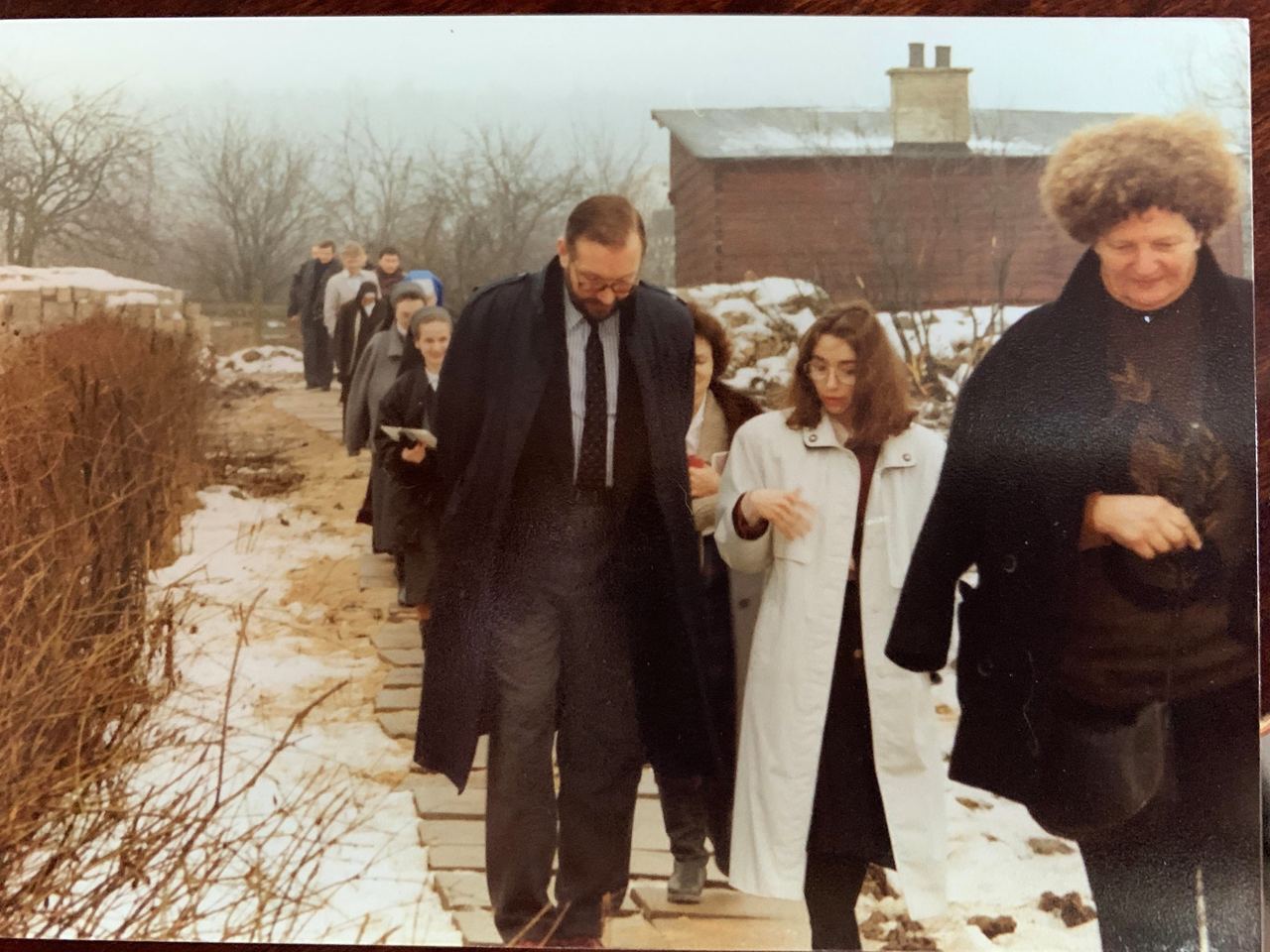
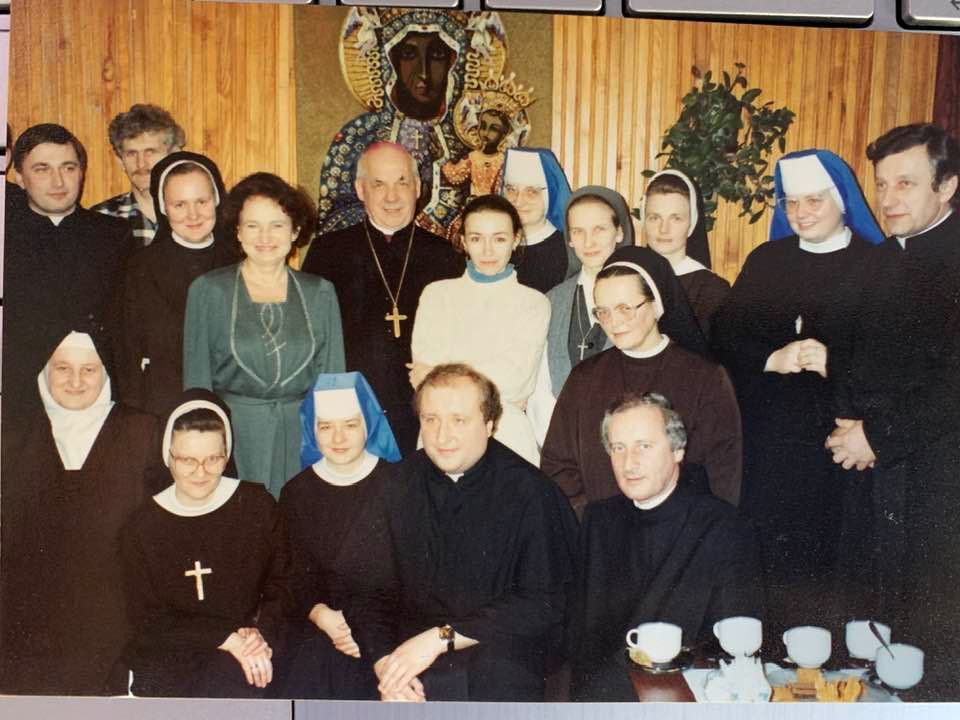
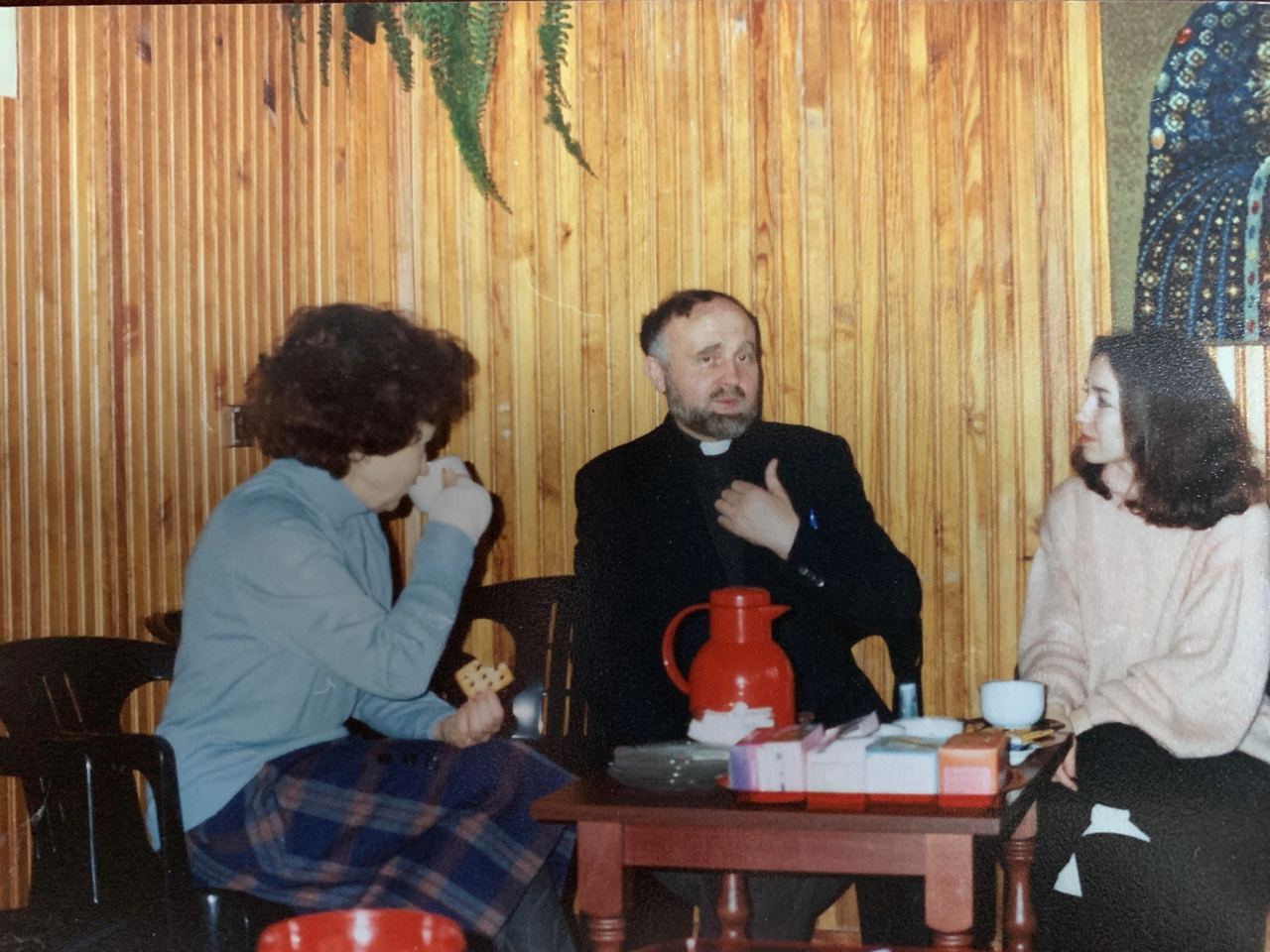
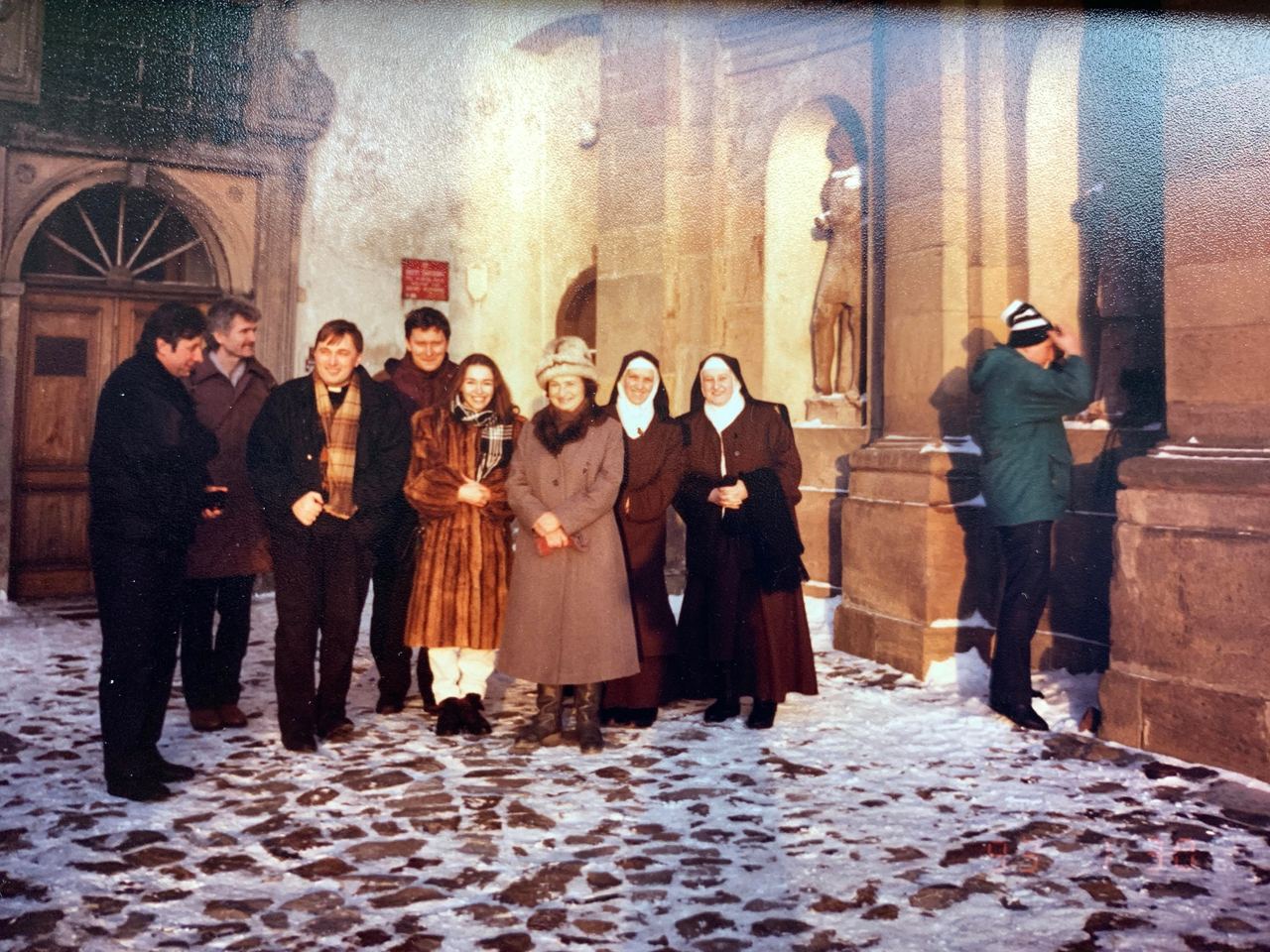
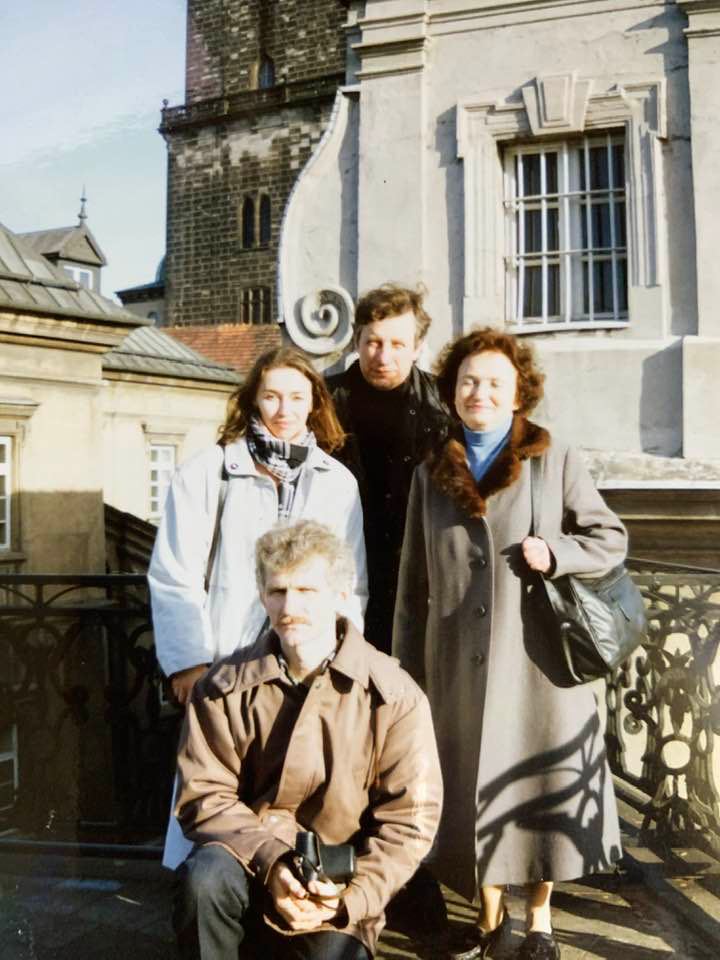
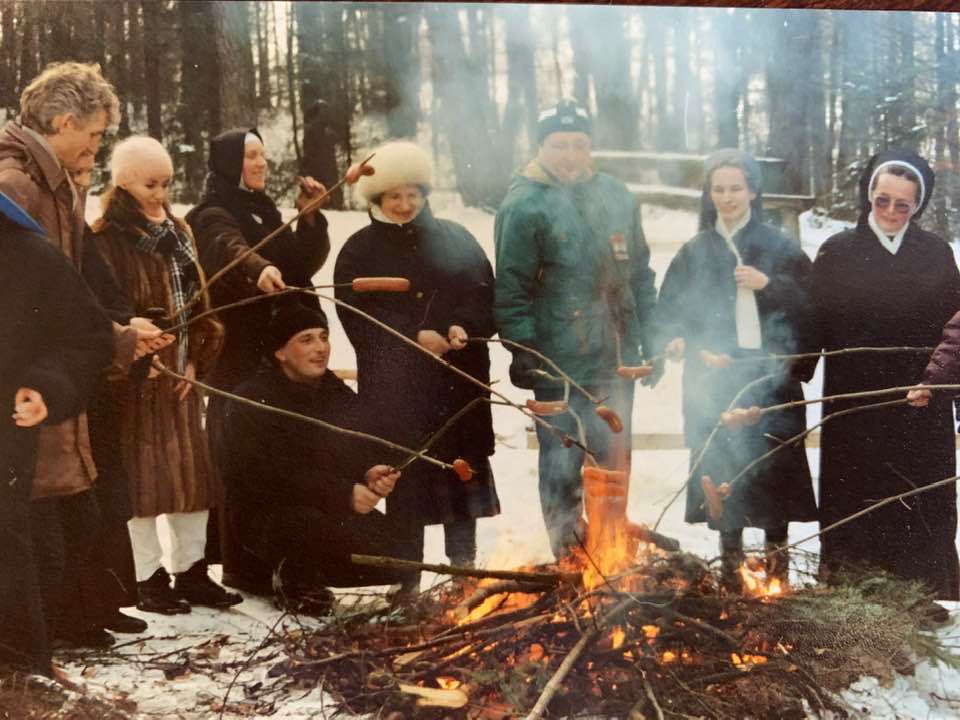
Over the course of two years, there were several intakes for preparatory courses for work in Belarus. Each one lasted a few months, and up to 30 persons got trained every time. Rev. Lukasz Kopaniak, the head of this initiative at the time, recalls that despite the political changes, “we were afraid of agents”, but Ales “was a reliable and proven person, with good recommendations”. “Bialiatsky was very calm, spent time alone, and read a lot. Everyone appreciated his knowledge and modesty,” recalls Kopaniak. In turn, Rev. Grzegorz Juźwiak, a Capuchin and a graduate of one of those courses, recalled that Ales received Communion daily. “Sometimes it seemed to me that some unearthly energy emanates from him, it attracted people to him,” he says. “Thanks to Ales, I fell in love with Belarus as my second motherland.”
Human Rights Work as a Continuation of Christian Ministry
In 1996, a wave of protests against the establishment of Lukashenka’s regime took place in Belarus. The rallies were brutally dispersed, their participants were persecuted, and the detainees need to support badly. The human rights centre Viasna was born then, and Bialiatski focused on this activity.
In 1997, as if summing up his active participation in Catholic life, he wrote that “the Roman Catholic Church undisputedly produced more Belarusian publications than anyone else; the global outlook and intellectual preparedness of its local elite allowed the Church to very quickly prioritise the Belarusian language in its publications “. “I put my effort and soul into it,” Bialatsky later recalled. The Belarusian Catholic Assembly continued its work until the end of the 1990s.
In 2011, Ales Bialiatski was sentenced to 4.5 years of imprisonment for “tax avoidance”. This sentence was politically motivated; Bialiatski was recognized as a political prisoner. In the detention colony, he was visited by the then nuncio Claudio Gugerotti who, at the behest of Pope Benedict XVI, delivered his blessing to the political prisoner. In his book, Prison Notebooks, Bialiatski described this meeting; among other things, he wrote: “Gudgerotti said: ‘I will be with the pope in October. What should I give him?’. – Tell him that this is the greatest event in my life. Pope’s attention and concern for us. (…) Let’s hope that his intercession for political prisoners in Belarus will bear fruit.”
Bialiatski once said that being a believer for him meant having great patience and understanding of otherness in any of its manifestations. Indeed, 26 years of human rights work in difficult Belarusian circumstances and three years of imprisonment did not stop Ales from helping people defend their rights. Bialiatski is again a political prisoner today: the Nobel laureate has been in a Belarusian prison for more than a year already.






